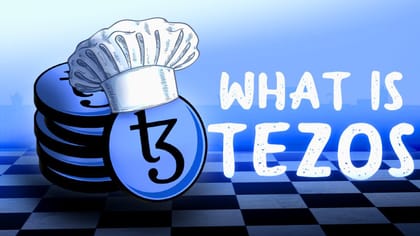Free Airdrop Season 7 is LIVE! Answer fun questions or do simple tasks to earn rewards from the $30K BitDegree prize pool. Participate Now ! 🔥
Kraken Launches Self-Custody Crypto Wallet, Joins Industry Leaders
Key Takeaways
- Kraken has launched a self-custody wallet that allows users to manage digital assets independently and supports a variety of cryptocurrencies;
- The wallet emphasizes user security and privacy;
- Kraken's wallet launch is a response to regulatory changes.
Kraken, a major cryptocurrency exchange, has officially launched its own self-custody wallet, joining other leading platforms like Binance and Coinbase in providing users a way to independently manage their digital assets.
It supports various cryptocurrencies across eight major blockchains, including Bitcoin, Ether, Solana, Dogecoin, Polygon, Arbitrum, Optimism, and Base.

Did you know?
Subscribe - We publish new crypto explainer videos every week!
What is Tezos? XTZ Cryptocurrency Easily Explained (ANIMATED)


The Kraken Wallet allows users, whether they are clients of the crypto exchange or not, to engage with decentralized finance (DeFi) tokens, non-fungible tokens (NFTs), and thousands of decentralized applications (dApps) through Wallet Connect.
It prioritizes user privacy and security by collecting minimal data necessary for operation and uses Kraken's infrastructure to secure users' identity and location information. Users' private keys are protected with mobile biometrics and password encryption.
The wallet is also open-source, with its code available on GitHub, and has passed a security audit by Trail of Bits.
Eric Kuhn, Product Director for Kraken Wallet, highlighted the wallet's contribution to DeFi:
Kraken Wallet is how we invest in the 'your keys, your crypto' ecosystem which is vital for the existence of permissionless financial access.
This launch reflects Kraken's response to changing regulations that distinguish self-custody wallets from traditional financial services, as these wallets do not directly handle fiat currency transactions and hence face different legal requirements.
To adhere to evolving legal requirements, the crypto exchange has also recently made adjustments to its service offerings, including the decision to cease support for Monero (XMR) in Ireland and Belgium.
Such decisions demonstrate Kraken's commitment to aligning with regulations while enhancing user experience in managing digital assets.























